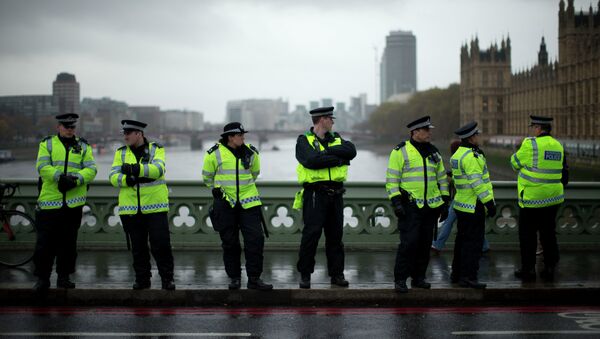‘Crime Recording: Making the Victim Count', a report on crime data integrity has been released by Her Majesty's Inspectorate of Constabulary (HMIC). It details an inspection carried out between November 2012 and October 2013, scrutinising all 43 police forces in England and Wales. It found that over a quarter of sexual offences and a third of violent crimes reported to the police each year are not being recorded as crime.
In a few forces, crime recording was found to be very good; in others the report says it is unacceptably bad.
HM Chief Inspector of Constabulary, Tom Winsor says: "The first duty of the police is to protect the public and reduce crime. A national crime-recording rate of 81 per cent is inexcusably poor. Failure properly to record crime is indefensible. This is not about numbers and dry statistics; it's about victims and the protection of the public".
For the last 20 years police forces have reported their data to the Home Office for publication by the Office for National Statistics. In the last two decades, the figures suggested there had been a dramatic reduction in crime in England and Wales. A drop in crime figures is often exploited by politicians keen to appear tough on crime. However the revelation that 800,000 crimes a year fall beneath the radar leaves room for public scepticism of the police.
The inspection found that out of 3,256 crimes that were initially recorded correctly, a decision was made afterwards by officers to cancel the crime. According to the report this affected how over 200 rapes and 250 violent crimes were registered.
The new report also revealed that 37 cases of rape were not recorded as crimes in the first instance. This, Tom Winsor says is of serious concern. "The national rate of under-recording of sexual offences (including rapes) as crimes was 26 per cent, and the national rate of incorrect decisions to no-crime rapes was 20 per cent. These are wholly unacceptable failings. Some forces have exemplary records in this respect, and some others are very bad. It is particularly important that in cases as serious as rape, these shortcomings are put right as a matter of the greatest urgency. In some forces, action is already being taken in this respect".
Putting the victim first
"The police should immediately institutionalise the presumption that the victim is to be believed. If evidence later comes to light which shows that no crime occurred, then the record should be corrected; that is how the system is supposed to work", according to Tom Winsor.
An example cited in the interim report published earlier in May this year revealed that a 13 year old child with autism told his parents he had been sexually assaulted by a 15 year old boy. Contact with the police was made, along with an allegation of rape. Yet no crime was recorded on the grounds that it would have a negative effect on the victim.
This incident, in the interim report says, was ‘wrongly written off as sexual experimentation. A crime should have been recorded'.
In one case involving a rape victim, ‘workload pressure' was an excuse for not being able to accurately record a rape. It was considered to be ‘too much work', as the case officer thought it unlikely that the case could be successfully prosecuted. According to the interim report, this ‘demonstrates a serious failure of duty to that victim'.
Rape Crisis England and Wales, said this report was of grave concern. Katie Russell from the charity said: "Findings such as those published today do nothing to improve survivors' confidence that they will be listened to, believed and their cases adequately handled if they do want to pursue criminal justice."
But it's not the first time disparities in police recording of rape have been revealed, says Katie Russell.
"Statistics released by HMIC at the beginning of this year revealed persistently high levels of ‘no criming' in relation to rape of both adults and children and wide disparities in police recording and investigation practices between 43 forces."
And in February 2012, HMIC published its ‘Forging the Links' report jointly with Her Majesty's Crown Prosecution Service Inspectorate (HMCPSI), which highlighted similar concerns about inadequate and inconsistent police practice.
"How many more such reports will it take before we see a real and marked improvement in criminal justice for survivors of rape and other forms of sexual violence? " asks Katie Russell, from Rape Crisis England.
The new report: ‘Crime Recording: Making the Victim Count', offers an insight into the culture of some police forces; one that places bureaucracy before victims, and seems to prioritise targets, rather than target perpetrators.


